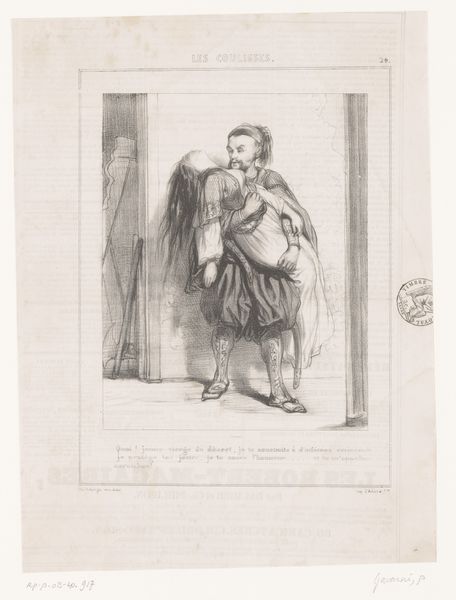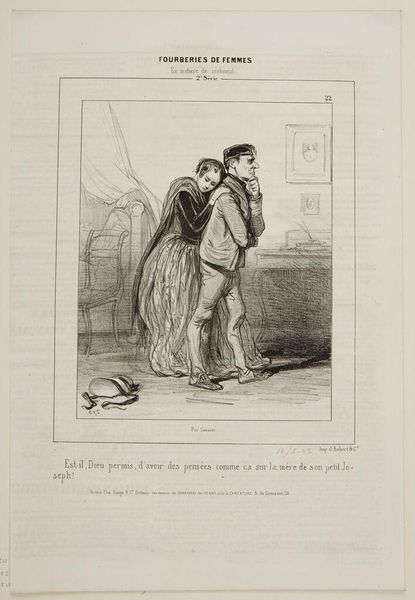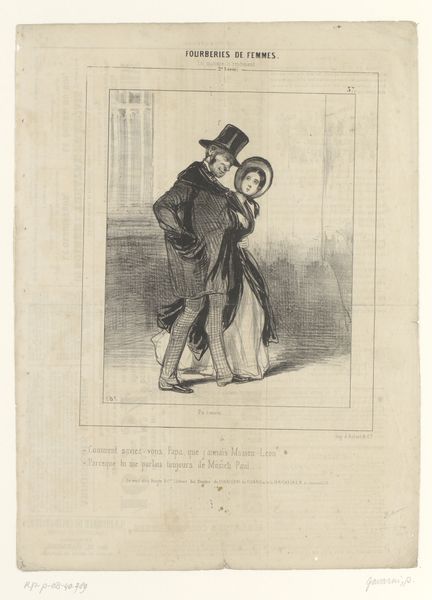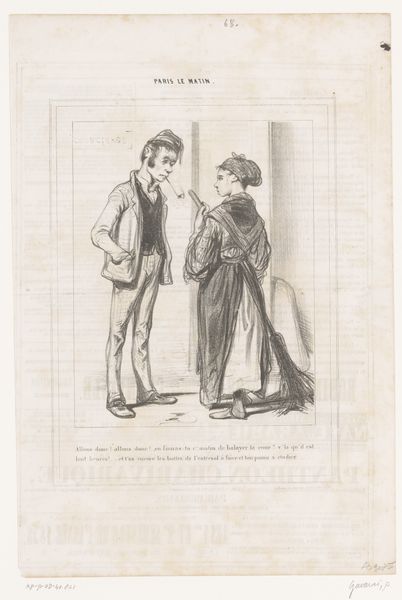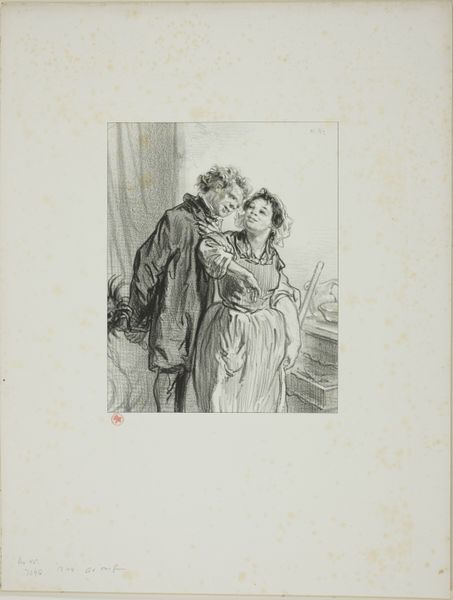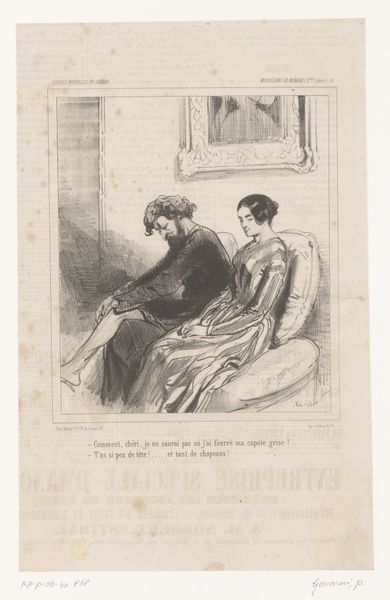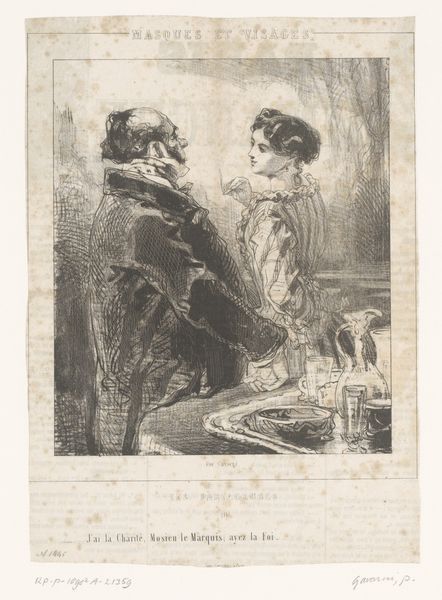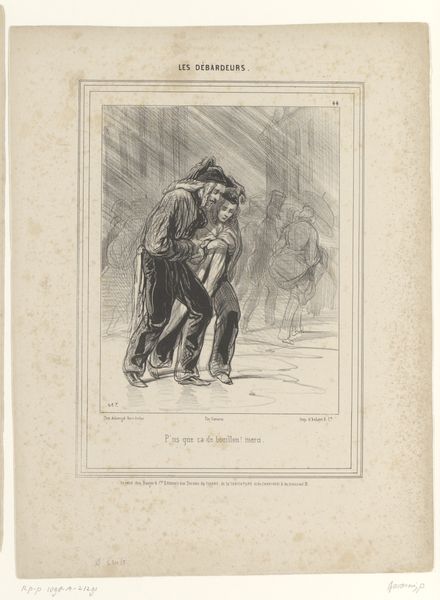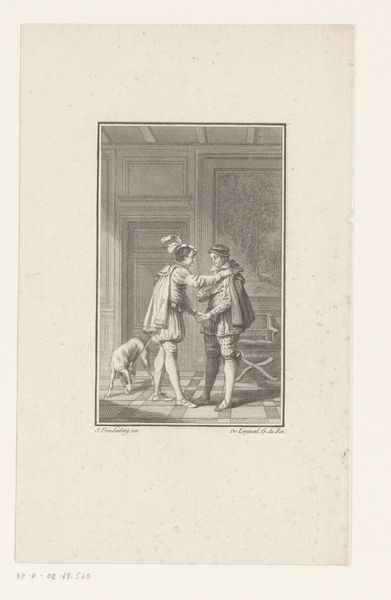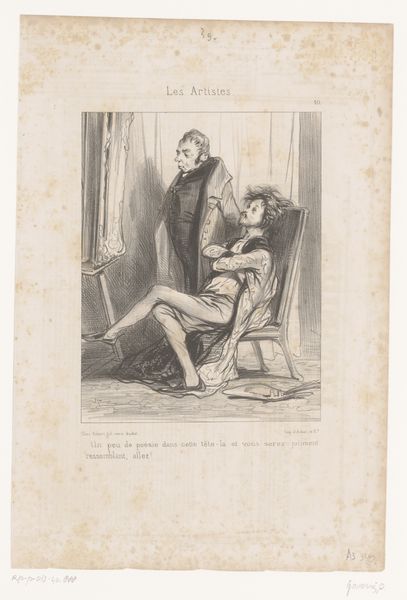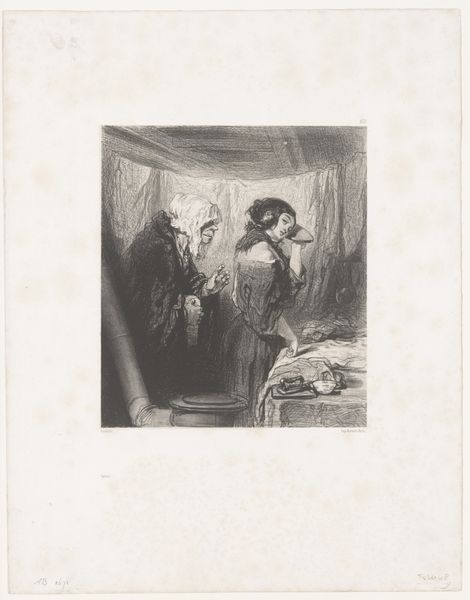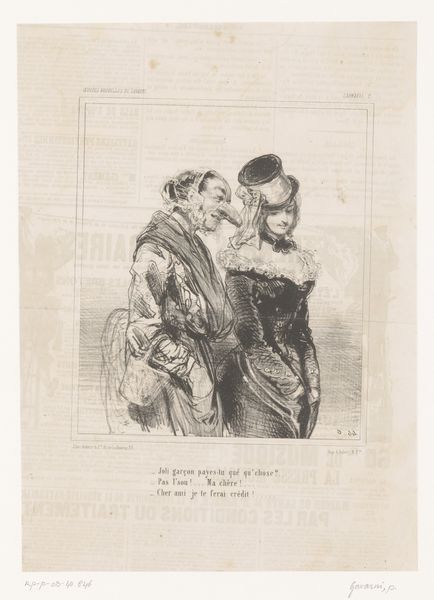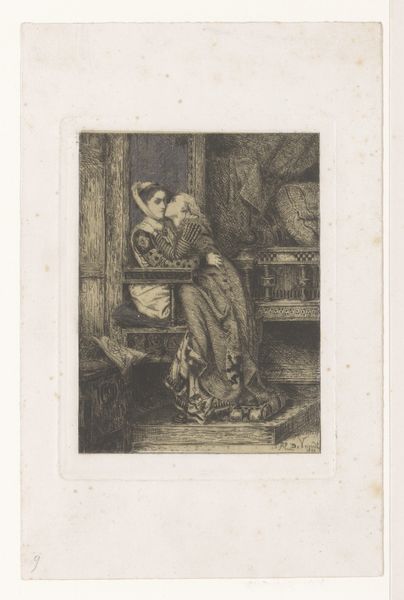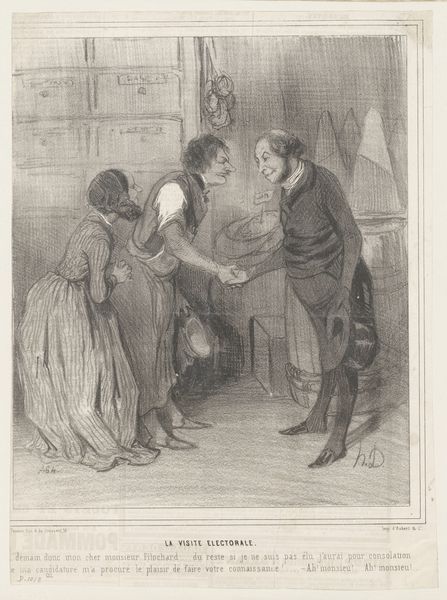
drawing, lithograph, pen
#
portrait
#
drawing
#
comic strip sketch
#
light pencil work
#
narrative-art
#
lithograph
#
caricature
#
pencil sketch
#
old engraving style
#
figuration
#
personal sketchbook
#
idea generation sketch
#
sketchwork
#
romanticism
#
sketchbook drawing
#
pen
#
pencil work
#
genre-painting
#
storyboard and sketchbook work
Dimensions: height 272 mm, width 190 mm
Copyright: Rijks Museum: Open Domain
Curator: This is "Doubting Man Embraced by His Wife," a lithograph by Paul Gavarni, dating from 1842, and currently residing here at the Rijksmuseum. Editor: It's… charming, in a melancholic way. The shading is very delicate, giving it the feel of a quickly captured, intimate moment. You can really feel the weight of the man’s worries, the stoicism in his posture contrasting the woman’s soft embrace. Curator: Absolutely. Gavarni was keenly interested in depicting the nuances of modern life, particularly relationships and societal expectations. In the context of 1840s France, this piece subtly critiques the societal pressures placed on men and women, their expected roles in marriage, in a rapidly changing world that saw the slow emergence of what would become the bourgeoise family ideal. Editor: Do you mean it's not all that rosy, even as presented? The title calls it "doubt," but there could be so much more implied here than just temporary uncertainty. Maybe the doubt speaks to broader societal shifts. Curator: Indeed. Gavarni challenges these established roles by capturing moments of private vulnerability. The man, traditionally positioned as the stoic provider, is clearly burdened, questioning perhaps his abilities or his future. And while the woman offers comfort, the image as a whole can also highlight how a gendered burden could manifest as class anxiety as new capitalist roles developed at that time. Editor: So, it’s not just a tender scene. The image becomes a quiet rebellion against confining expectations, if we dig deeper, doesn't it? A subversion, really, captured in lithographic stone. It almost acts as a reminder that history is carried out at the smallest, personal level. Curator: Exactly! It reminds us that within even the seemingly stable structures of society are internal and individual conflicts that shape both domestic arrangements, and social change on a broader, epochal scale. Editor: Thinking about this print in that light gives it a totally new depth, which transcends that initial mood. It reminds us to look beyond the surface in every era!
Comments
No comments
Be the first to comment and join the conversation on the ultimate creative platform.
